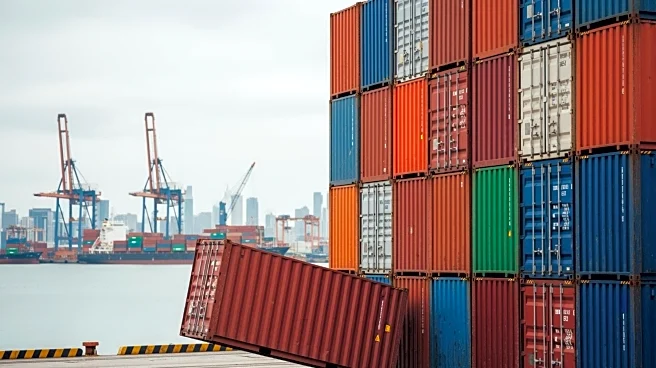What's Happening?
The Global Shipping Report by Descartes indicates a decline in U.S.-bound container imports in September, following a summer surge. The import volume fell by 8.4% compared to August, with significant reductions from China and other countries. The report
attributes the decline to seasonal softening and tariff-related caution, as importers adjust shipment flows in response to policy changes. Despite the drop, year-to-date volumes show moderate resilience, with a 1.9% increase compared to the previous year.
Why It's Important?
The decrease in container imports reflects the impact of ongoing trade policy shifts and economic uncertainty on U.S. supply chains. The decline from China, a major trading partner, highlights the sensitivity of import volumes to tariff deadlines and policy outcomes. This situation may affect U.S. businesses reliant on imported goods, potentially leading to supply chain disruptions and increased costs. The report underscores the need for strategic planning by importers to navigate the complexities of international trade.
What's Next?
With the expiration of the U.S.-China tariff pause approaching, importers may face further adjustments in shipment flows. Businesses may need to explore alternative sourcing strategies to mitigate the impact of potential tariff increases. The situation could lead to increased lobbying efforts by industry groups seeking favorable trade policies. Policymakers may need to consider the broader economic implications of trade tensions and work towards solutions that support stable supply chains.
Beyond the Headlines
The decline in imports raises questions about the long-term effects of trade policy on U.S. economic growth and competitiveness. It highlights the challenges faced by businesses in adapting to a volatile trade environment. The situation may prompt discussions on the need for comprehensive trade agreements that address the complexities of global supply chains and support sustainable economic development.















